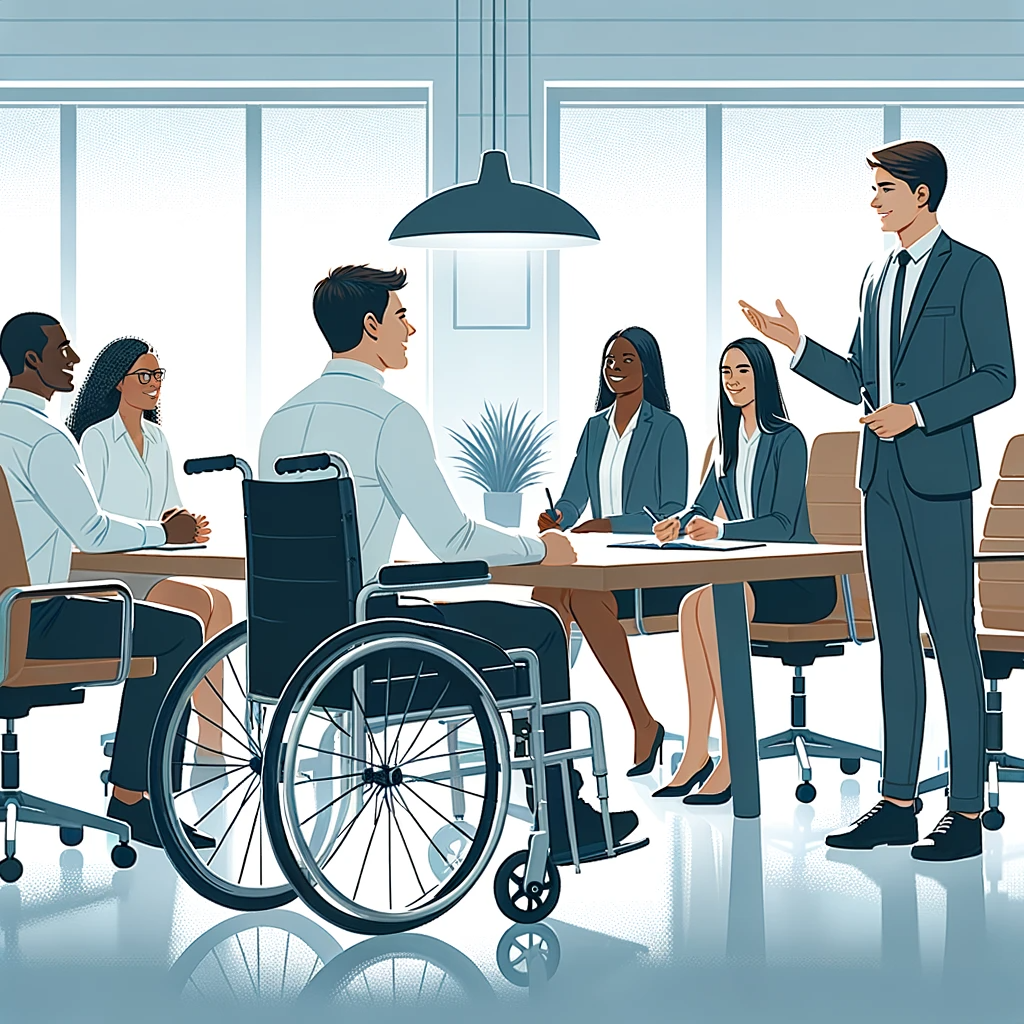As a graduate of the University of Illinois with a degree in advertising and a person with SMA, my journey through the professional world has been anything but conventional. Job hunting and career development, while challenging for most, is a significantly different landscape for someone with a physical disability like mine. These are my experiences – the struggles, the innovations, and the relentless pursuit of professional fulfillment.
The traditional career path, with its linear progression from entry-level to higher positions, assumes a certain uniformity in capabilities and opportunities. This path, already narrow in scope, becomes even more constricted when you factor in a physical disability. I’m limited to office-type roles, particularly those offering remote work, which should theoretically ease the process. However, the reality is laden with complexities.
One major hurdle is the implicit and subconscious biases present in the hiring process. These biases are not always overt, but they are profoundly impactful. Pre-Covid, I’ve encountered hiring professionals who actually stated they didn’t feel they could employ me because their office bathrooms weren’t accessible. Ironically, I don’t use a restroom during the day, but such misconceptions and lack of awareness about disabilities create unnecessary barriers. Even after trying to allay their concerns, it was abundantly clear they were uncertain about my ability to “fit in.”
Living in a rural area adds another layer of difficulty. The scarcity of professional opportunities limits my ability to “put lines in the water” and thus diminishes my chances of landing a job. This geographical constraint, coupled with the challenges posed by my disability, necessitated a different approach.
So, post-graduation, I leveraged my advertising degree to launch my own business, 2Fast4u Productions, specializing in digital video media. This venture was not just a business; it was a passion project, a dream taking shape with my father as my cameraman and the hands of the operation. Together, we produced work that I am still proud of. But this journey was not without its costs. The financial investment was substantial for us, and the physical toll it took on my father was severe, culminating in a long-term injury.
This encapsulates the core issue: to pursue financial success and professional fulfillment, I had to forge my path, relying on family support and personal resources. Unfortunately, despite our best efforts, the production company did not succeed. I then moved into poker and cofounded RangeTrainerPro. While this venture has shown promise, it has yet to provide the stability and success that a conventional job might offer.
I’ve attempted the “lifting myself up by the bootstraps” approach multiple times. I don’t lack drive, passion, experience, or intelligence – the usual ingredients for success. Yet, these qualities alone have not bridged the opportunity gap that exists for individuals with disabilities, particularly in rural areas.
While the journey is fraught with frustration, surrender is not an option for me. Not just because I’m determined, but because survival—both financially and emotionally—demands it. A career is more than just a means to earn; it’s a lifeline that fuels purpose and passion daily. The challenges are relentless, especially for someone with a disability in a rural setting. By sharing my experiences, I want to highlight the realities and barriers we face, emphasizing the urgency of change.
My goal is to contribute to a future where career paths are not defined by physical abilities but by talent, passion, and dedication. As I continue on my path, navigating the intersections of disability, geography, and professional aspirations, I remain committed to not just carving out my niche but also to paving the way for others to follow. It’s about building a more inclusive, understanding, and accessible professional landscape – one where the next person with SMA or any other disability doesn’t have to face the same hurdles I did. It’s about getting closer to a place where geographic location and physical limitations are not impediments to professional success. Where diversity in the workforce truly includes those with physical disabilities, recognizing the unique perspectives and strengths we bring to the table.
